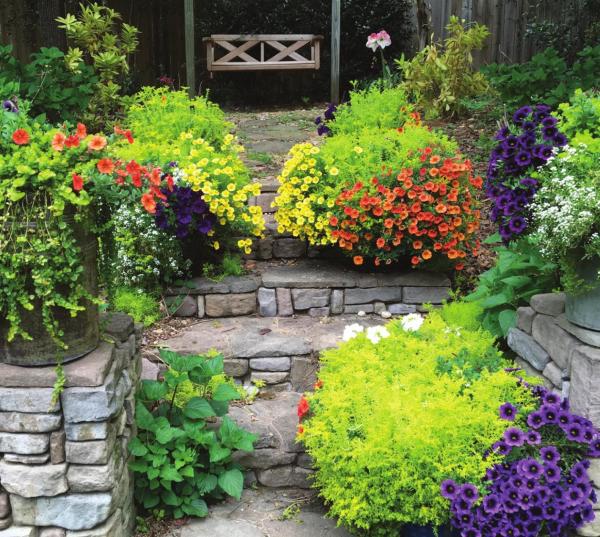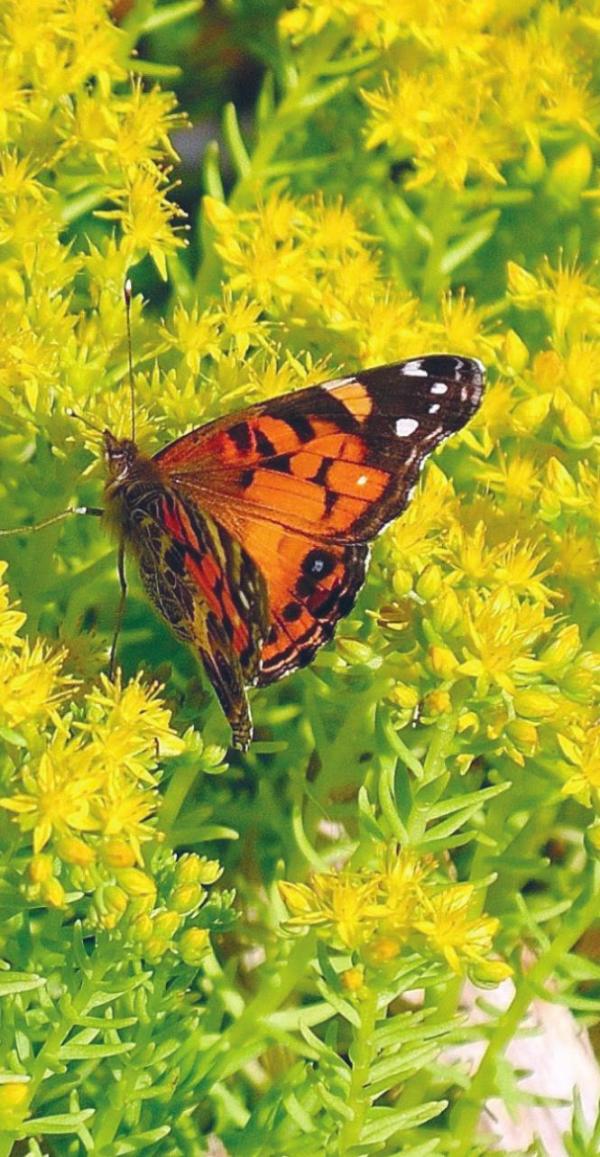Lemon Coral Sedum: Celebrate the flowers
A funny thing happened on the way to May... I have what looks to be a million tiny yellow flowers. It happens every year for about 4 to 6 weeks but no one talks about it some even look away. In fact, Lemon Coral sedum was the 2019 Proven Winners Annual of the Year, yet I don’t remember flowers being mentioned. While I am at it, I will add, I have never had one die either. The truth, or caveat to that is that I have lived my whole horticultural life in zones 7b-10. In other words, fairly mild to warm climates.
When it comes to Lemon Coral, we all love the soft succulent needle-like foliage so much that we almost confess apologetically and tell our friends and neighbors, oh that is the sedum blooming. Proven Winners now say if you are lucky, you may get some blooms. How about this, every year ‘The Garden Guy’ gets a million yellow blooms and I am not the only one, we aren’t embarrassed, Let’s Celebrate It! I can even see some town having a Lemon Coral Flower Festival.
Look at it from another perspective, we partner that luxurious chartreuse foliage with our favorite colors of Supertunia petunias, Superbena verbenas or Superbells calibrachoas and we love it, but then in April and May, it gives way to an explosion of yellow flowers, welcoming spring and creating stunning combinations.
After the bloom cycle we give it a trim or cut it back, probably to the delight of the companions, give it a little shot of fertilizer and we are off for the long hot summer. When the temperature crosses over from hot to oppressive this little sedum from Mexico (Sedum mexicanum) is like a living layer of mulch keeping roots cooler and tough as nails when it comes to water needs.
Wherever, I have planted the lime green, soft succulent, needle-like foliage becomes a ‘look at me beacon’ in the landscape. Its habit is mounding, compact and will compete on your list of toughest plants you have ever grown, reaching 10-inches tall with a 14-inch spread.
Lemon Coral sedum will be a rocksolid perennial in zones 7-11 and among the best buys for your garden dollar when purchased as an annual in zones 6 and colder. Lemon Coral also makes a great container mix for other succulents grown indoors. Those flowers which we sometimes embarrassingly accept outdoors in the landscape and mixed containers may surprise you with a pollinator or two.
Though I am touting them as an obvious choice for the landscape when the ‘Heat is On’, they are perfect pansy pals for the winter in zones 7 and warmer. Whether you plant a cool season container, one for the scorching temperatures that lie ahead, or in the landscape the soil must drain freely, as soggy soil usually proves fatal. Planting in containers is much the same as planting in the landscape. Place all of your plants with the top of the root ball even with the soil line.
Lemon Coral sedum has won almost 20 honors including Top Performer Awards in Michigan and Wisconsin to Perfect Score all Season at Penn State. Those trials are in the north where it is an annual but it is outstanding the in the South where it won in the heat and high humidity at Mississippi State. Love the foliage but Celebrate the Flowers too, with Lemon Coral Sedum. Follow me on Facebook @NormanWinterTheGardenGuy for more photos and garden inspiration.




